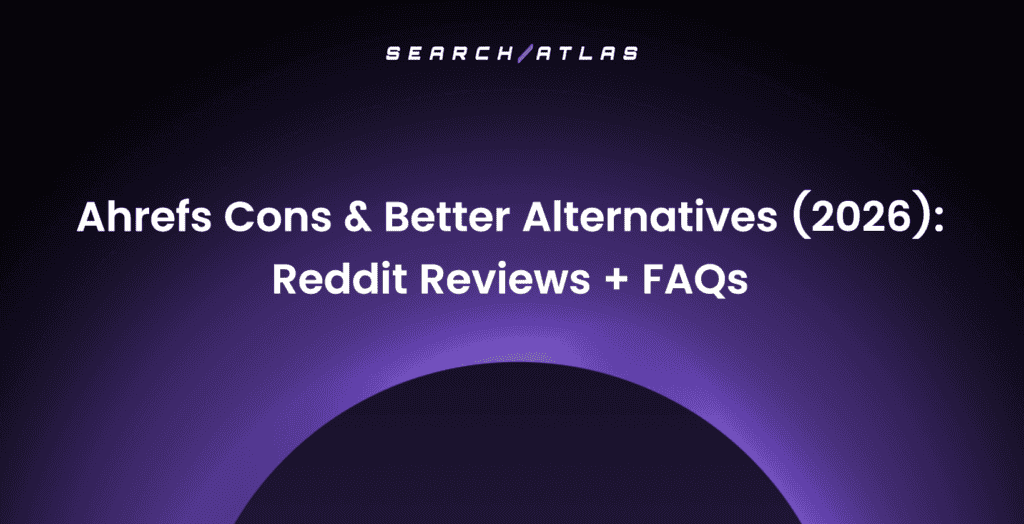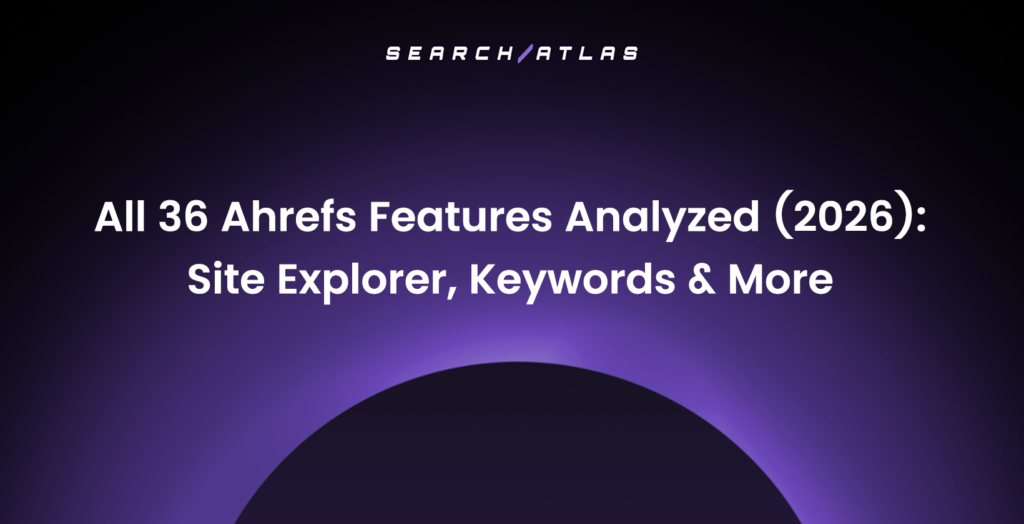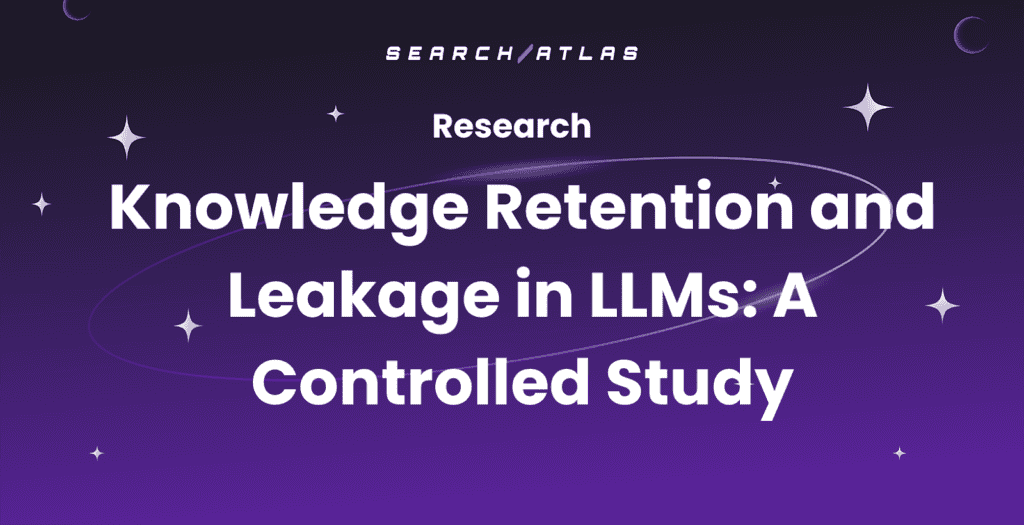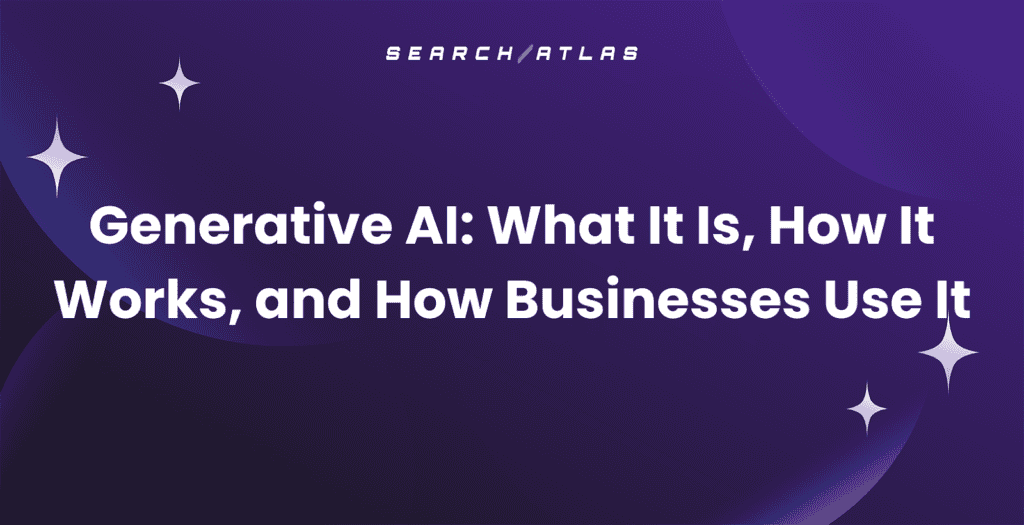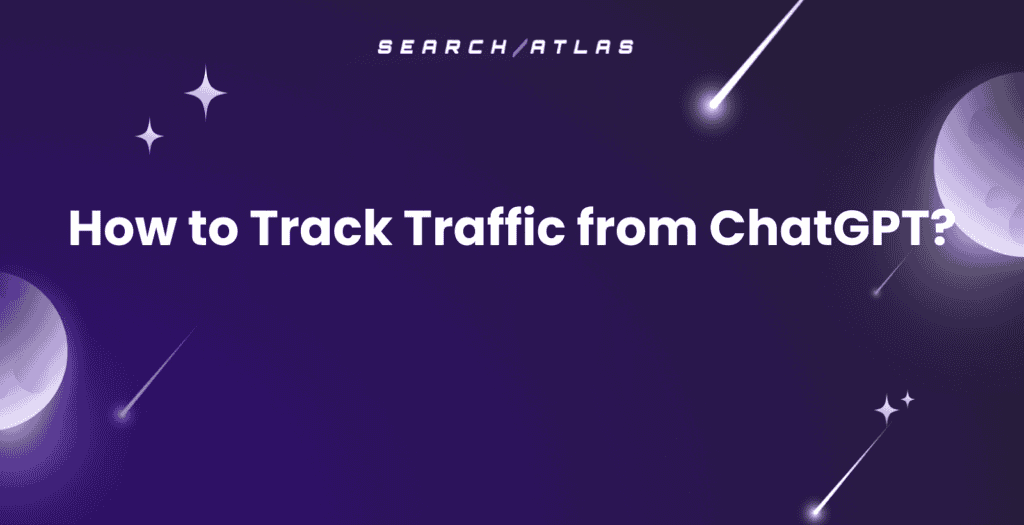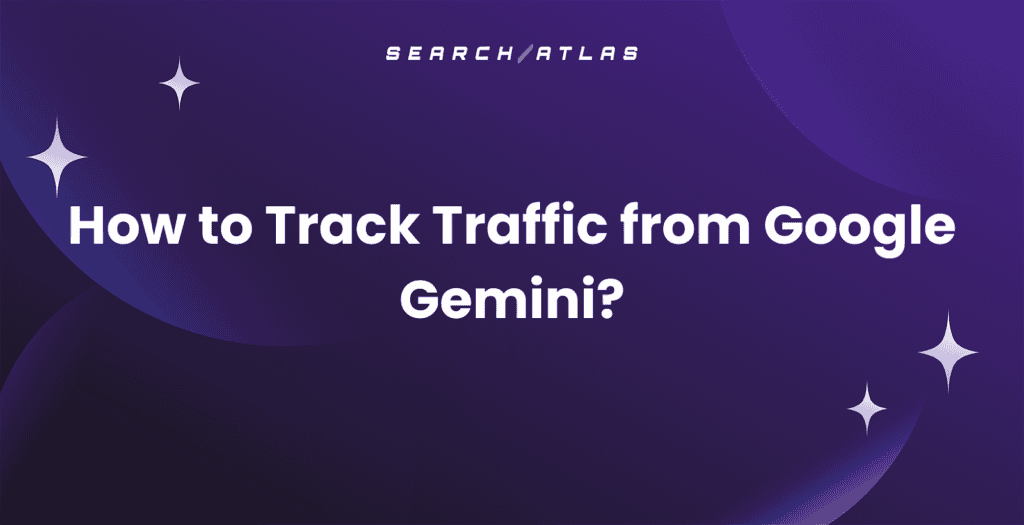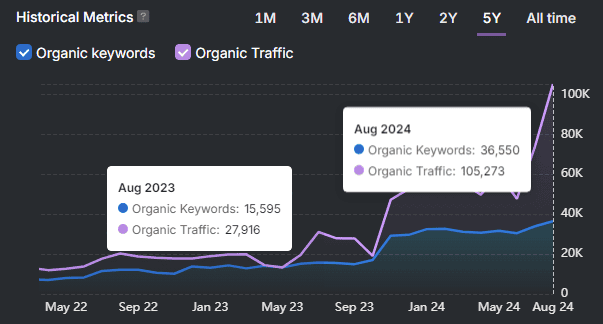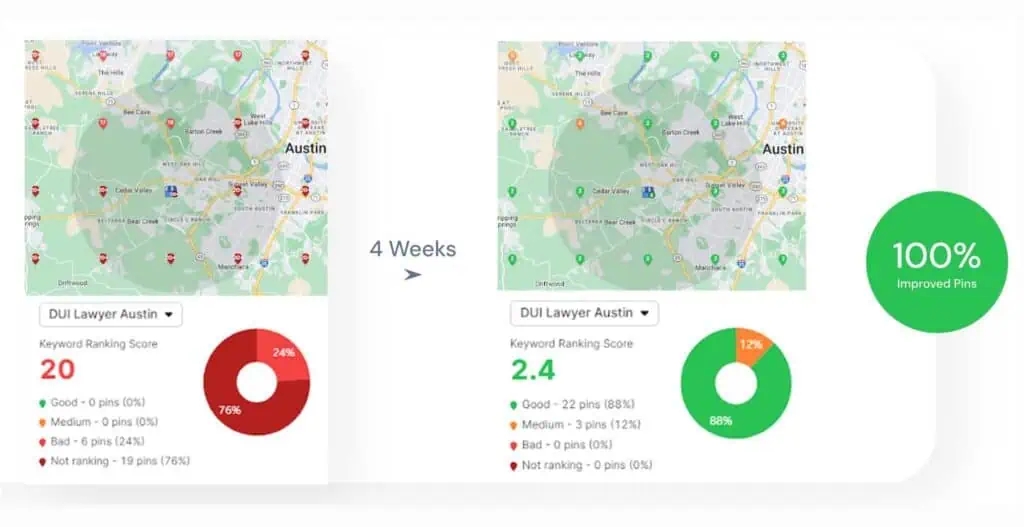Are you analyzing SEO plugins? This means you must know the real question isn’t just what they do—it’s how they do it. The SEO Framework vs. Yoast SEO battle represents two very different philosophies on what WordPress SEO feels like.
Yoast SEO brings a guided, feature-rich environment with plenty of prompts, insights, and upsell-ready tools. It’s geared toward content creators and marketers who want clarity, direction, and a system that holds their hand along the way.
The SEO Framework is quieter by design. It favors simplicity, performance, and automation without ads or distractions. For developers and minimalists, it’s a no-fuss plugin that just works—clean, fast, and to the point.
In this comparison, we’ll examine The SEO Framework vs. Yoast showdown. This way, you’ll get to know strengths, limitations, and unique values, so you choose the one that aligns with your priorities in 2025. ⚙️
What Is The SEO Framework?
The SEO Framework is a streamlined WordPress plugin that focuses on delivering fast, efficient SEO without the bloat or upsells.
Designed with performance and automation in mind, it takes care of core optimization tasks quietly in the background, making it useful for users who want clean code, quick results, and minimal fuss.
Where many plugins overwhelm with ads, distractions, or branded tooltips, The SEO Framework stays nearly invisible. It integrates seamlessly with your site’s existing setup, making smart decisions by default, while still allowing plenty of customization under the hood.
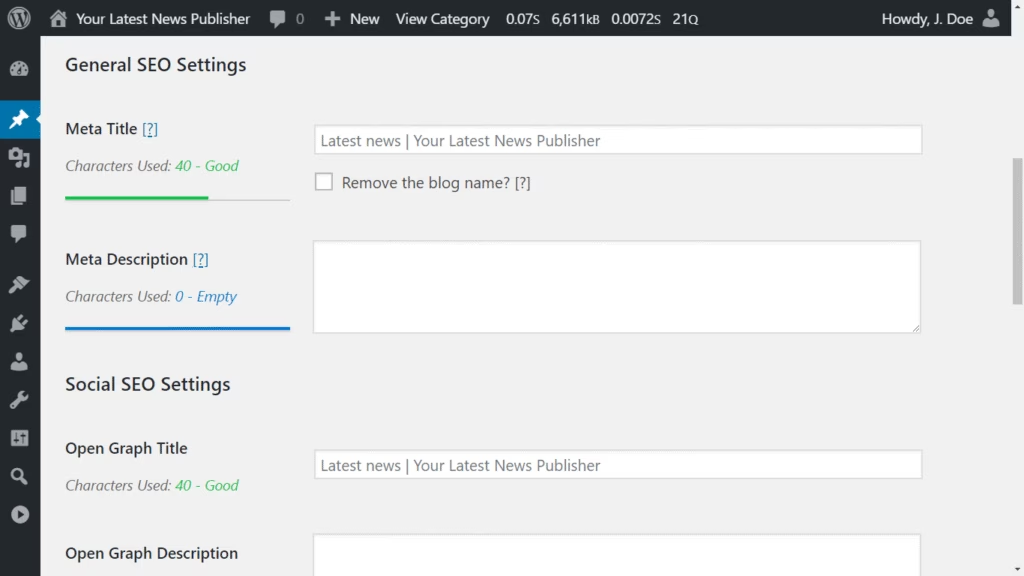
The SEO Framework handles technical SEO automatically, from canonical URLs to structured data and social media tags. Its lightweight interface keeps your WordPress dashboard clutter-free and lightning fast, whether you’re optimizing a personal blog or a high-traffic business site.
Its free version covers most standard needs, including metadata management, sitemap generation, and breadcrumb navigation. With the premium “Extension Manager,” you unlock advanced modules like local SEO, focus keyword targeting, and custom schema control.

The SEO Framework Popular Features
The SEO Framework focuses on speed, automation, and privacy-first SEO. Here are its most notable tools:
- Preconfigured SEO Automation. Applies smart defaults automatically, with little to no manual setup needed.
- Metadata and Canonical URL Management. Clean, optimized meta titles and canonical URLs out of the box.
- Structured Data Support. Adds schema markup to enhance search appearance without extra plugins.
- Breadcrumb Navigation. Built-in breadcrumbs to improve site structure and user experience.
- Social Metadata Control. Manage how your content looks on social media with Open Graph and Twitter Cards.
- Privacy-Focused Design. No ads, tracking, or branding—even in the free version.
The SEO Framework Pricing Structure
- Free. Unlimited premium critical SEO, unlimited free extensions
- Pro. $7/month — Extensions unlocked on 2 sites, 500 API requests/month
- Business. $17/month — Extensions unlocked on 20 sites, 5,000 API requests/month
- Agency. $27/month — Extensions unlocked on 200 sites, 50,000 API requests/month
What Is Yoast SEO?
Yoast SEO is one of the most established and trusted SEO plugins in the WordPress ecosystem. Known for its signature traffic light system and hands-on guidance, it helps users improve their content’s search engine performance without needing deep technical knowledge.
Yoast delivers real-time SEO and readability feedback directly inside the WordPress editor, whether you’re writing a blog post or building a full-scale website. Yoast simplifies on-page optimization by highlighting areas that need improvement and offering clear, actionable suggestions.
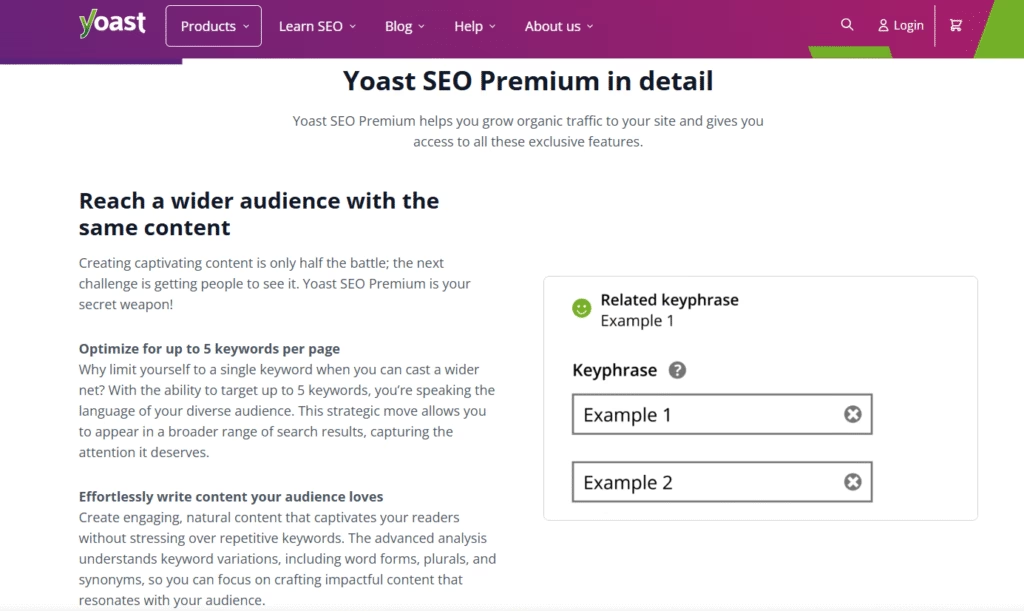
Yoast is popular with both beginners and professionals thanks to its user-friendly interface, comprehensive documentation, and ongoing feature development. The plugin supports everything from keyword targeting and metadata management to structured data and redirects.
The free version covers most essentials, including content analysis, XML sitemaps, and social media previews. Upgrading to premium unlocks enhanced features like multiple focus keywords, AI-generated meta descriptions, internal linking tools, and advanced schema integration.
Yoast Popular Features
Yoast SEO offers a robust feature set designed to make on-page optimization intuitive and effective.
- Real-Time SEO and Readability Tool. Color-coded indicators guide you through optimizing content for both search engines and human readers.
- Focus Keyword Optimization. Enter a keyword and receive instant recommendations to boost content relevance.
- Snippet Preview Tool. Customize and preview how your pages appear in Google search results.
- Internal Linking Suggestions. Smart link suggestions to improve site structure and boost page authority.
- Redirect Manager. Create and manage redirects with ease to avoid broken links and preserve rankings.
- Advanced Schema Support. Automatically generate structured data to increase visibility in rich results.
Yoast Pricing Structure
- Free Plan. Keyword optimization, readability checks, and basic SEO settings.
- Premium Plan. $99/year — Includes advanced keyword support (up to 5 keyword variations), smart internal linking, automatic redirects, and AI-powered suggestions.
- Plugin Plan. $229/year — Adds specialized plugins for WooCommerce SEO, local SEO, video SEO, and news content.
The SEO Framework vs. Yoast SEO: Which Plugin Fits Your Strategy in 2025?
Both The SEO Framework and Yoast SEO are respected players in the WordPress SEO space, but they cater to different user needs. To help you decide which plugin aligns with your SEO workflow, we’ll compare them across seven essential categories—from setup experience and usability to technical features, support, and value.
1. Ease of Use and Setup
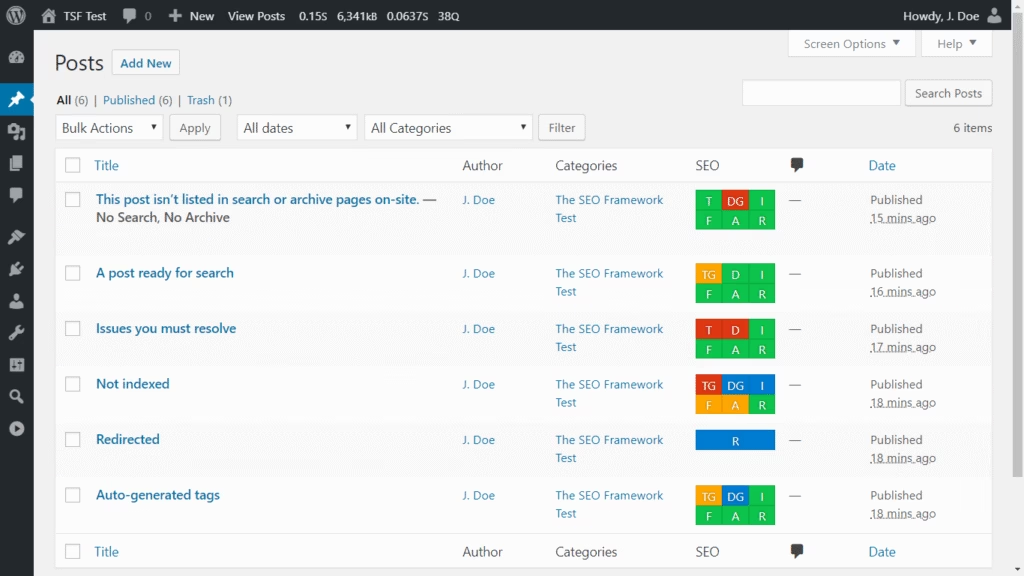
The SEO Framework offers a minimalist, clean interface that is easy to navigate. It suits users who want a lightweight plugin without a cluttered dashboard. Setup remains straightforward with sensible defaults that get users going quickly. Some users find it too barebones without guided tutorials or hand-holding.
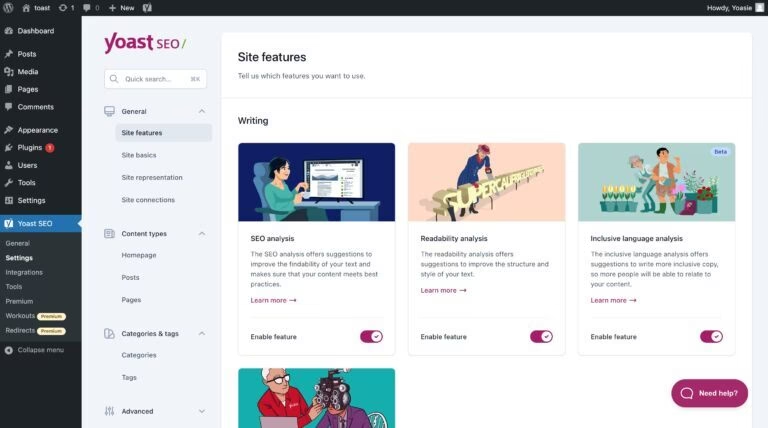
Yoast SEO features a visually guided setup process with clear onboarding steps and explanations, which helps beginners get started easily. The plugin interface includes color-coded signals and tooltips that assist users. Advanced users sometimes find the interface overwhelming due to its complexity.
Winner: Yoast SEO
Yoast’s onboarding and user-friendly visual cues improve accessibility for beginners, while The SEO Framework serves users who already know SEO basics.
2. On-Page SEO Tools
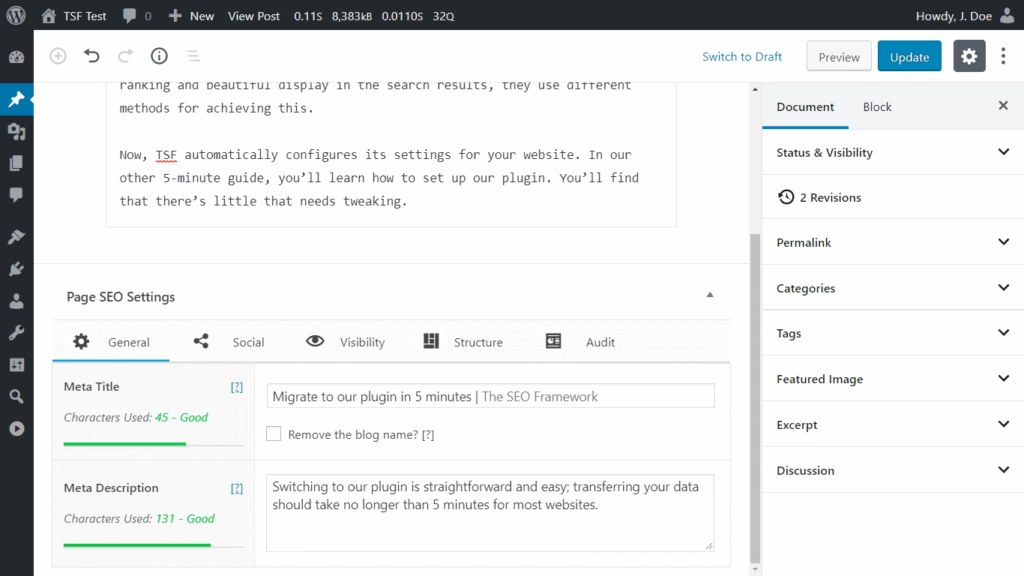
The SEO Framework provides solid meta tag editing, canonical URL management, schema support, and automatic title generation. It covers essential on-page SEO without excess features. It lacks some advanced content analysis features present in other plugins.
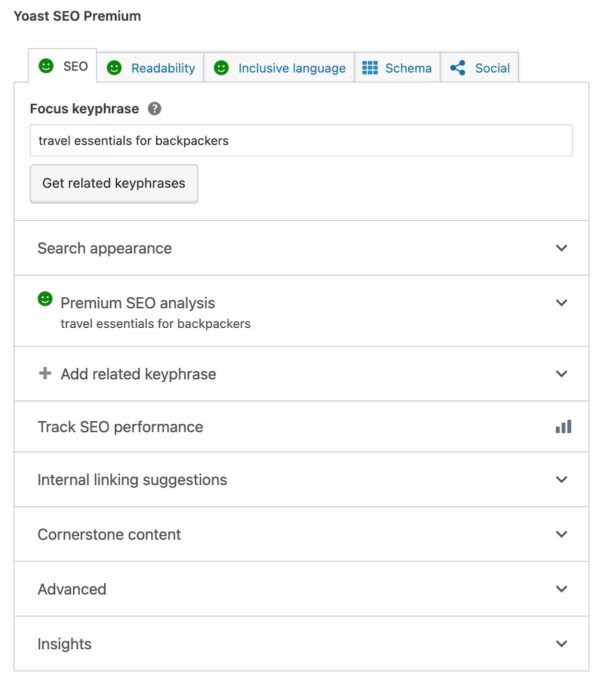
Yoast SEO offers robust on-page tools including real-time SEO analysis, keyword density checks, readability scoring, snippet previews, and improvement suggestions. The plugin delivers in-depth assistance, but sometimes overwhelms users with notifications.
Winner: Yoast SEO
Yoast provides a richer on-page optimization experience through real-time content analysis and readability tools, which The SEO Framework does not.
3. Automation and AI Features
The SEO Framework uses built-in intelligent defaults that reduce manual tweaking. It avoids distractions and configures many settings automatically. It lacks AI-powered content assistance at this time.
Yoast SEO includes AI-driven features such as AI-generated meta descriptions and internal linking suggestions in premium versions. These features improve automation and workflow efficiency.
Winner: Yoast SEO
Yoast integrates advanced AI tools that support content creation and internal linking, giving it an advantage in automation.
4. Schema and Structured Data
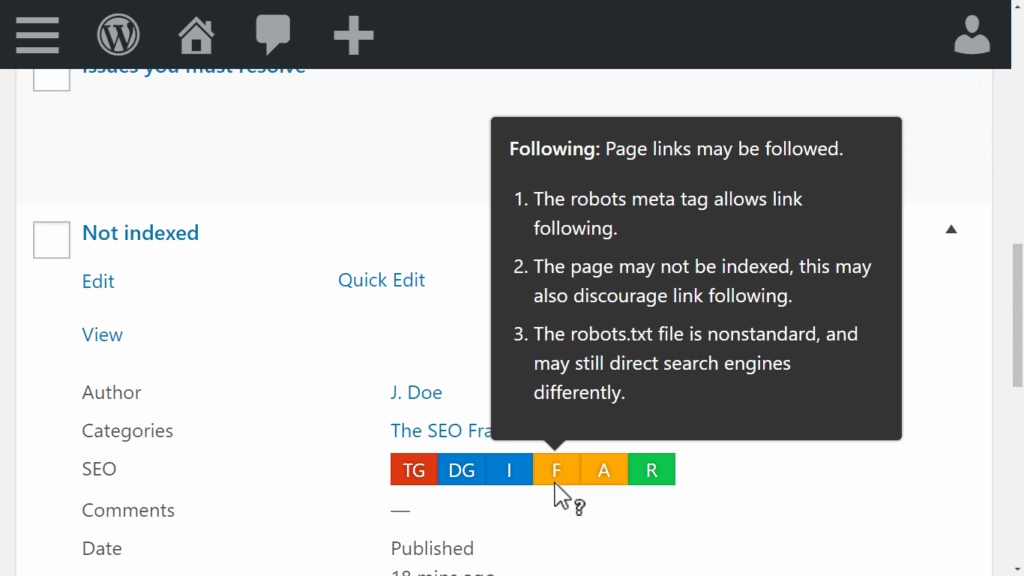
The SEO Framework offers strong support for schema markup with automatic output for common types, which improves rich snippet eligibility without extra setup. Its structured data is lightweight and clean. The plugin supports custom schema.
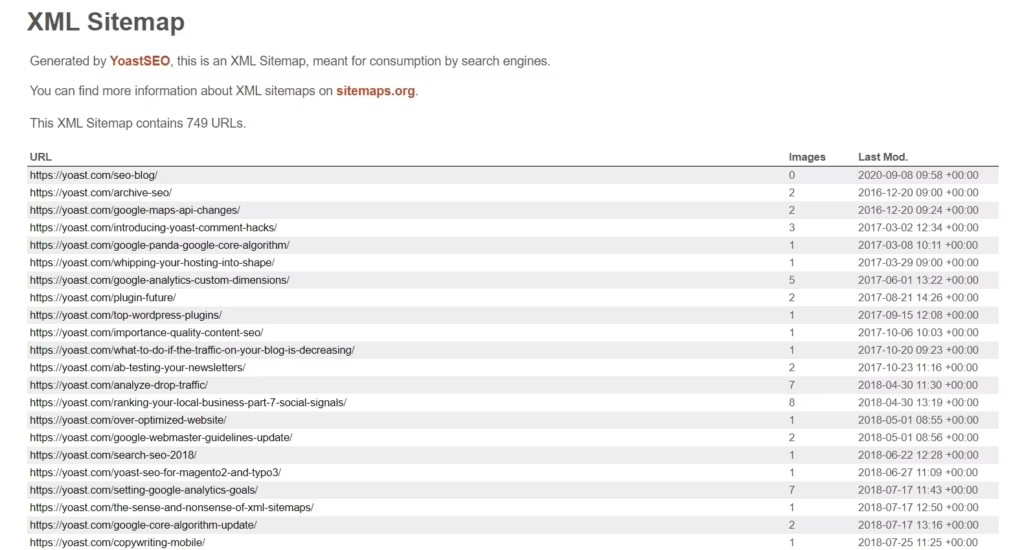
Yoast SEO provides extensive schema integration, including enhanced support in premium add-ons for specialized content types like WooCommerce and video SEO.
Winner: Tie
Both plugins deliver excellent schema support. The SEO Framework offers simplicity, and Yoast delivers expanded options via add-ons.
5. Performance and Site Speed
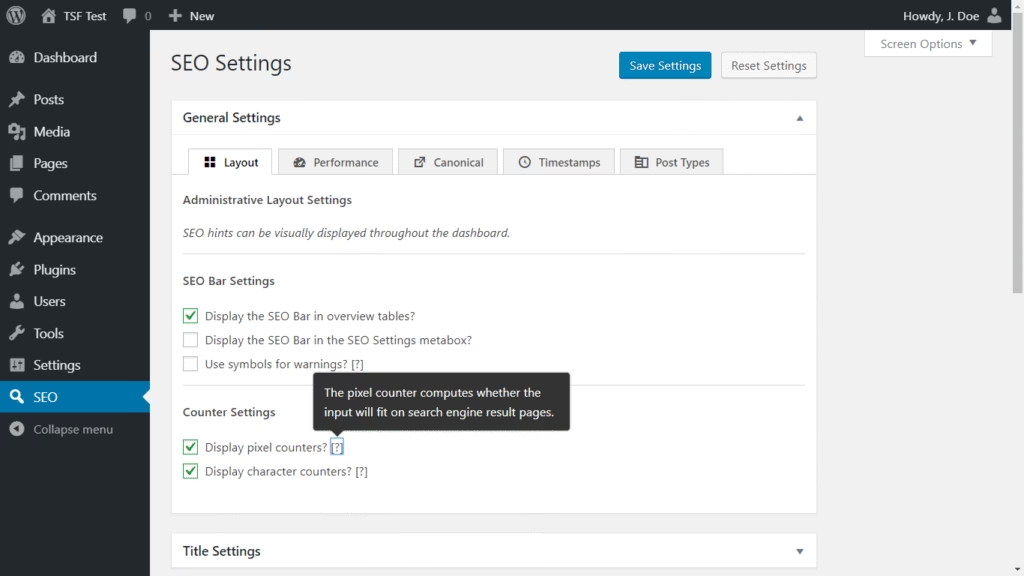
The SEO Framework is designed to be lightweight and fast. It uses minimal scripts and database calls, which helps maintain site speed even on large installations.
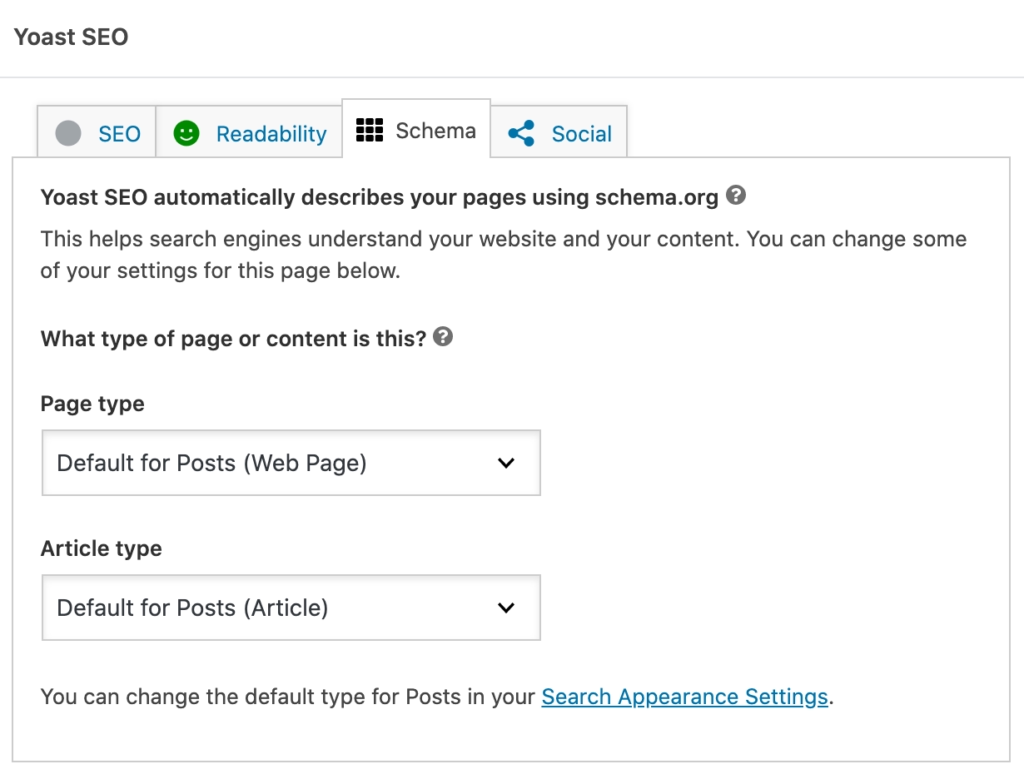
Yoast SEO is optimized for performance. Its richer feature set and interface add overhead, which may affect load times on very large sites.
Winner: The SEO Framework
The SEO Framework’s lean codebase prioritizes speed, making it better for performance-conscious users.
6. Multisite and Developer Friendliness
The SEO Framework excels in multisite environments with network-wide settings and granular controls. The codebase is clean and well-documented, which appeals to developers and agencies that want to customize or extend functionality.
Yoast SEO supports multisite with a powerful premium feature set. Developers find its codebase more complex and heavier to extend.
Winner: The SEO Framework
The SEO Framework’s minimalist design and developer-focused approach make it easier to manage and customize multisite setups.
7. Updates and Compatibility
The SEO Framework maintains regular updates with strong compatibility across WordPress versions and popular plugins. It emphasizes stability and security.
Yoast SEO updates frequently with timely support for new WordPress features and integration with a broad ecosystem of plugins and themes.
Winner: Tie
Both plugins have solid records for updates and compatibility and keep pace with WordPress development.
8. Pricing and Value
The SEO Framework: Features transparent and affordable pricing with a free core plugin covering essentials and a reasonably priced premium extension bundle for advanced features.
Yoast SEO: Includes a free version with solid basics. Premium plans and add-ons increase costs quickly, especially for multiple sites or specialized needs.
Winner: No clear winner
The SEO Framework provides excellent value with affordable pricing and a simple model. Yoast delivers more advanced tools but at a higher cost. The best option depends on budget and feature needs. New alternatives with competitive pricing and features exist, which we will introduce next. 👀
A Better Alternative to The SEO Framework vs. Yoast SEO: Search Atlas
Both The SEO Framework and Yoast offer useful features for optimizing WordPress websites, but they focus primarily on on-page tasks and basic SEO hygiene. When higher performance, automation, and scalability become essential, these tools fall short.
Search Atlas delivers more than keyword suggestions and metadata tweaks. It functions as a full SEO operating system built for content teams, marketers, and agencies who want to scale visibility with precision and speed.
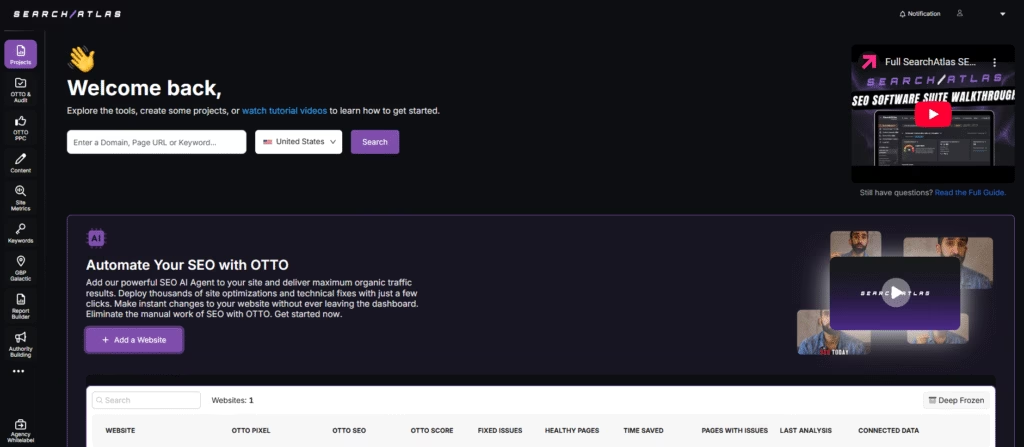
Search Atlas Features
Search Atlas excels in every area where The SEO Framework and Yoast show limitations. Instead of operating inside a WordPress sidebar, it runs as a full SEO operating system. It covers technical SEO, content creation, AI assistance, site audits, internal linking, schema, and backlink strategies.
Content Genius
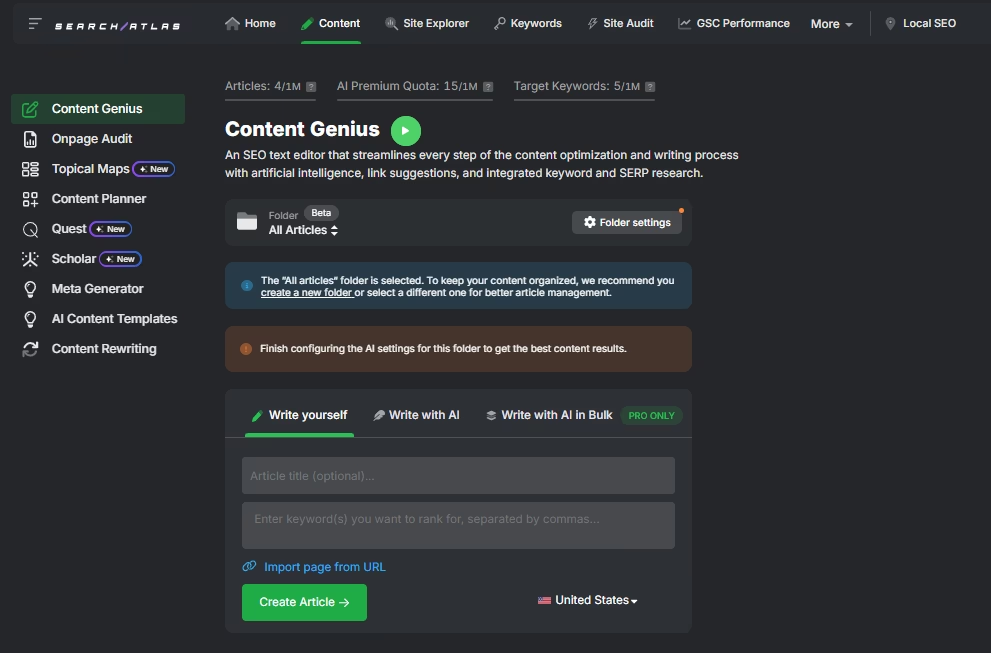
Yoast SEO’s biggest advantage over The SEO Framework lies in its real-time, color-coded content recommendations. The SEO Framework avoids manual content analysis altogether. But both tools stop at the post editor—they provide suggestions, not solutions.
Search Atlas solves this by introducing Content Genius, a complete content planning and optimization engine. It replaces multiple disconnected workflows by enabling users to:
- Plan keyword-driven content clusters using topical relevance and SERP overlap.
- Generate long-form content using AI that understands semantic SEO, internal link opportunities, and voice tone.
- Optimize for keyword density, word count, heading structure, and semantic relationships—all in real time.
- Push final drafts directly to WordPress in one click.
Instead of requiring separate platforms like Surfer, Clearscope, or Google Docs, Search Atlas streamlines the content lifecycle into one controlled environment.
Agencies and teams gain editorial speed, optimization depth, and publishing precision in a way that neither Yoast nor The SEO Framework supports.
OTTO
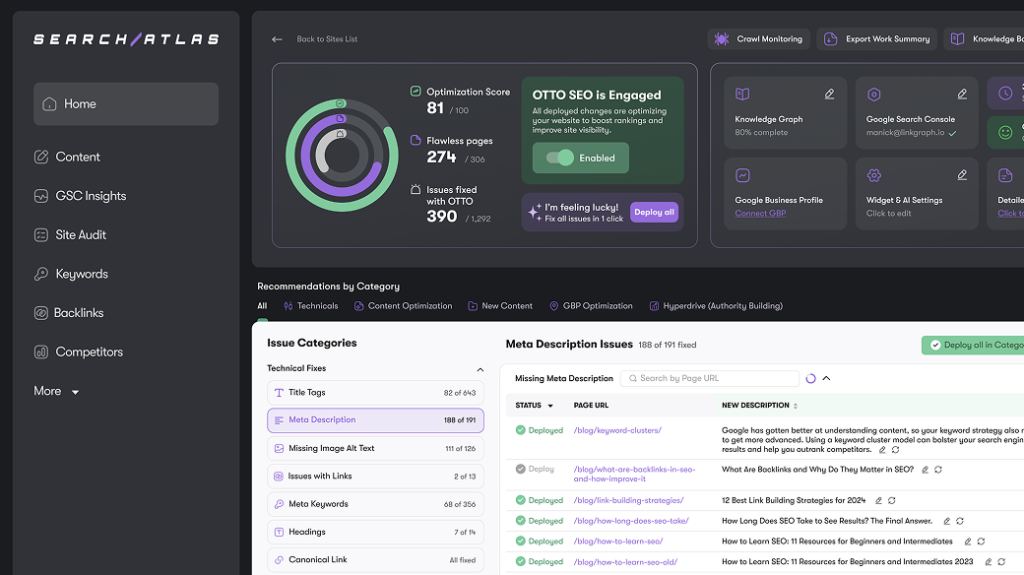
The SEO Framework offers structured data and automated meta tags. Yoast includes schema markup and advanced sitemap support. But both rely heavily on manual setup, and neither offers full-site intelligence or proactive automation.
Search Atlas changes that with OTTO, an AI-powered automation system built into the platform. OTTO performs continuous audits, identifies technical errors, and applies fixes based on live performance metrics.
It integrates with GA4 and Google Search Console to track real-world rankings and user signals.
- Auto-generated schema for various content types, instantly applied and editable.
- Real-time metadata optimization based on keyword performance and SERP previews.
- Structured data validation, canonical correction, and instant indexing protocols.
- Internal link optimization using entity-based relationships and crawl depth analysis.
Unlike Yoast and The SEO Framework, which depend on user input for most changes, OTTO acts independently when needed, eliminating bottlenecks and human error while scaling technical improvements across large or multisite installations.
Backlink Strategy and Outreach
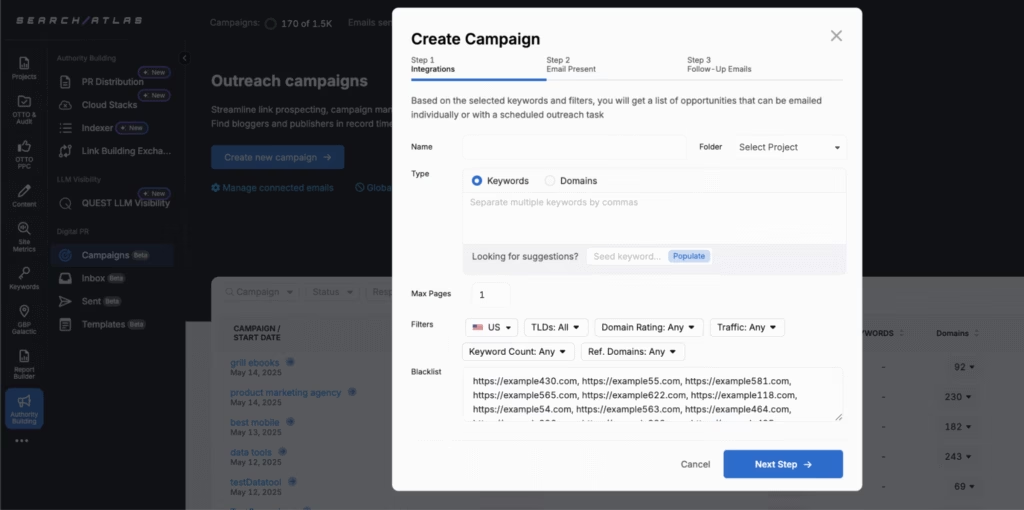
Neither Yoast SEO nor The SEO Framework includes native backlink analysis, competitor tracking, or link outreach. These are crucial areas for any SEO campaign aiming to increase authority, close content gaps, or recover from traffic declines.
Search Atlas includes a full backlink strategy module.
- Competitor Link Gap Analysis identifies which domains link to competitors but not your own content.
- Backlink Quality Audits score inbound links for trust, domain authority, and niche relevance.
- Built-in Outreach CRM manages contact lists, pitches, and follow-ups without switching tools.
While traditional plugins handle only on-site optimization, Search Atlas extends SEO management into off-site territory, without the need for external link tools or separate subscriptions.
Keyword Research and Content Mapping
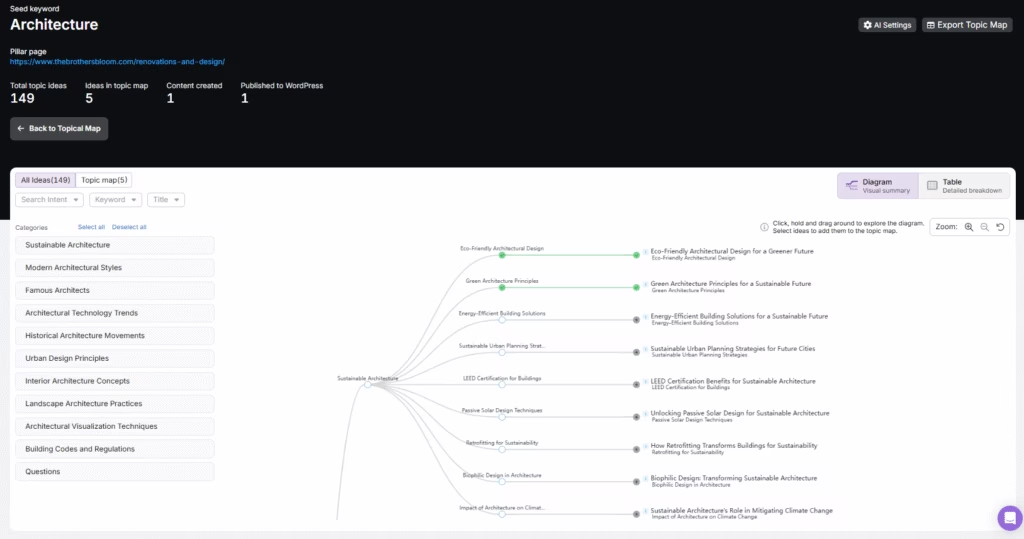
The SEO Framework does not include any keyword research tool. Yoast Premium allows limited multi-keyword optimization per post, but offers no insight into keyword trends, difficulty, or competitive gaps.
Search Atlas provides an advanced keyword research suite that connects directly to content planning and optimization.
- Discover high-intent keywords filtered by volume, difficulty, and SERP features.
- Analyze competitor keyword footprints and identify underserved queries.
- Build topic maps that structure site content by relevance, keyword clusters, and user intent.
This ties content strategy directly to measurable keyword data. It replaces third-party tools like Ahrefs, SEMrush, or Ubersuggest with a native system that integrates planning, writing, and publishing in one environment.
Local SEO Built In
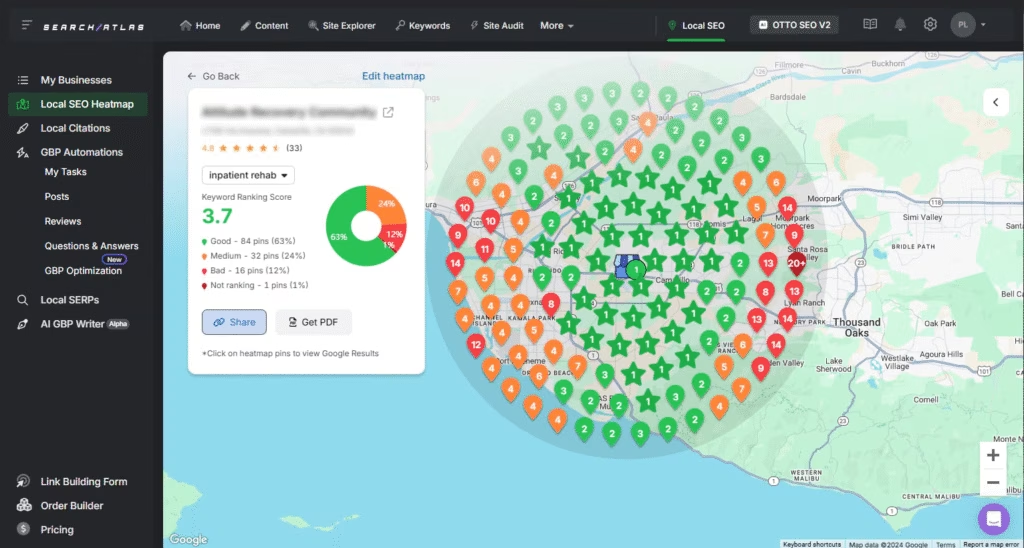
Yoast SEO offers a Local SEO add-on in its plugin bundle. The SEO Framework does not
support local SEO out of the box. Both rely on separate tools to manage Google Business Profiles (GBP).
Search Atlas includes native GBP management functionality. From the dashboard, users can:
- Manage multiple business locations and update listing information in bulk.
- Post location-specific updates, promotions, or events directly to GBP.
- Monitor reviews, impressions, and keyword-driven search performance.
Local businesses benefit from visibility improvements without needing separate tools like BrightLocal or Whitespark. This feature is especially valuable for agencies serving brick-and-mortar clients.
Search Atlas Pricing
Search Atlas offers a unified pricing model that includes complete access to all core features.
| Starter plan | Growth plan | Pro plan | |
|---|---|---|---|
| Price | $99/month | $199/month | $399/month |
| Free OTTO activation | 1 | 2 | 4 |
| User seats | 2 | 3 | 5 |
| GSC Site Projects | 5 | 15 | Unlimited |
| Content Assistant Keywords | 120 | 300 | 600 |
| On-Page In-Depth Audits | 40 | 100 | 200 |
| Content Plans | 40 | 100 | 200 |
| Pages / Articles Created | 40 | 100 | 200 |
| Full Article Generation Quota | 30 | 60 | 90 |
| Regular AI Quota | 100 | 250 | 99,999 |
| Site Auditor Projects | 5 | 10 | 100 |
| Keyword Rank Tracking Projects | 20 | 50 | 1,000 |
| Keyword Research Lookups | 500 | 2,000 | 5,000 |
| Competitor Research Credit | 2,000 | 20,000 | 50,000 |
Step Beyond Plugins—Experience SEO Without Limits
WordPress plugins like Yoast and The SEO Framework provide solid foundations. They improve on-page SEO, handle metadata, and guide optimization within the editor. But when strategy demands more—more insight, more automation, more reach, those plugins stop short.
Search Atlas moves you forward. It’s not just another tool, it’s your entire SEO stack in one streamlined platform. Build content strategies backed by real-time data. Uncover backlink opportunities your competitors miss. Automate audits, fix issues before rankings slip, and publish optimized content directly to your CMS.
Whether you’re scaling campaigns across clients or pushing for the top of search in a competitive niche, Search Atlas gives you the horsepower and precision to make it happen, all from one dashboard.
Try it free today and leave plugin boundaries behind. Real growth starts with better infrastructure.


